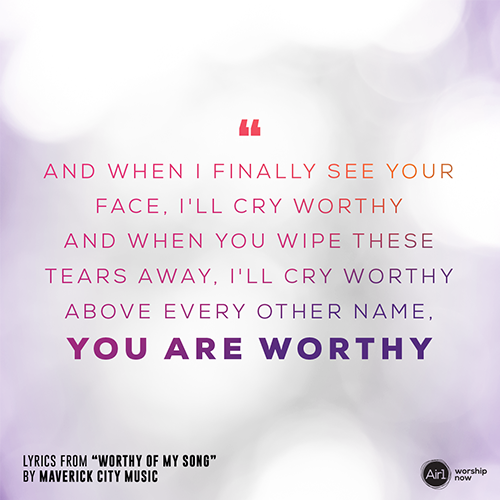
How early is too early to start making your Christmas wish list?
Well, if you ask my children, August is not too early.
I’m a twin dad and once our twins got past their birthdays in August, they started talking about what they want for Christmas. One opportunity for presents was over, so their minds immediately moved to the next one!
Listening to them share what they wanted and why reminded me of my own childhood experiences. I can remember some very special gifts, including some moments when we got something that we thought was an impossible request.
However, in my walk down memory lane, I also remembered the many times that I asked for something and didn’t receive it. I recalled the times when I made a long list, only to receive something that wasn’t even on my list.
Those moments can be disappointing, even heartbreaking for little humans. But, in the larger picture, they serve as important experiences to have as a kid, in order to break patterns of entitlement and build a deeper sense of gratitude.
It’s one thing for that experience to happen with some item on a Christmas list. But, it’s a much bigger thing when it's something you've prayed about, asking God to make a mighty move or drastic change in your life.
Have you ever longed for God to move in one way, only to watch Him not answer your prayer with the outcome you believed was the right one? Ever prayed for one thing, but God answered with something different?
If you’ve had that kind of experience, you have just a small taste of what the prophet Jeremiah and the people of Jerusalem went through. A different answer to prayer than expected is the context of the book of Lamentations. This short book within the prophets section of your Bible is Jeremiah’s response to the Babylonian’s capture of Jerusalem and removal of the people into exile.
Lamentations is Jeremiah recording his reflections, raw emotions, and lessons learned. The outcome which preceded Lamentations was not the desired answer to his original prayers, nor the prayers of the people. The Babylonians, led by Nebuchadnezzar, defeated the defenses of Jerusalem and captured the city. They took many of the residents into exile and God’s people became subjects of a sinful, pagan empire.
Lamentations begins with those raw emotions and reflections:
“Jerusalem, once so full of people, is now deserted. She who was once great among the nations now sits alone like a widow. Once the queen of all the earth, she is now a slave. She sobs through the night; tears stream down her cheeks…Judah has been led away into captivity, oppressed with cruel slavery.”
It’s not hard to imagine and empathize with the sentiments of the people of Judah. What if God doesn’t answer your prayer in the way you expect? Is God still good? Is God failing to provide for you?
This month’s Worship Now theme is God the Provider. This theme can be reassuring and encouraging. (Read Week 1 of "God the Provider")
But this theme can also be challenging. What happens when we don’t seem to get the provision we wanted, needed, or expected?
In those kinds of moments, through frustration and pain, I’ve learned some lessons about God the Provider.
First, lots of prayers haven’t come back with the response or provision I was hoping for originally. If you can’t imagine, that’s HARD! Those responses and provision are often disappointing and even disillusioning.
But, when we step back, or once we move through the initial intensity of those emotions, a second lesson comes into clearer focus. All of my prayers came back with a response. God didn’t fail or abandon His identity as Provider. The challenge was His understanding of provision versus mine - His understanding of my needs versus my own.
Lastly, I found an invitation within that disappointment and disillusionment. In that unexpected response and those difficult emotions, I sensed God asking, “Will you trust my wisdom and my provision when it doesn’t match your hopes and expectations?”
That’s so hard! In one of those moments, my honest response was “But God, I trust my wisdom more than Yours.” I can’t say I was proud of those words, but they were an honest confession.
As I look back at that time, I realize God was giving me what I had been longing and praying for, but in a way that I hadn’t expected. To go back to that Christmas present idea from the beginning, what if what you want most from God shows up in a package you don’t like? What if your longing to experience God and be close to Him means He provides mercy in the middle of your adversity rather than deliverance from your adversity? What if instead of getting you out of the trial, He becomes powerfully present with you in the trial?
That’s what Jeremiah experienced in the aftermath of Jerusalem’s collapse. Here’s what he wrote near the end of Lamentations.
“The faithful love of the Lord never ends! His mercies never cease. Great is his faithfulness; his mercies begin afresh each morning. I say to myself, ‘The Lord is my inheritance; therefore, I will hope in him!’ The Lord is good to those who depend on him, to those who search for him. So it is good to wait quietly for salvation from the Lord.”
God provided for His people. He gave them Himself in the middle of their trial. Because of His faithfulness, they could praise God in the middle of their pain.
This same sentiment animates a current favorite Air1 song, Maverick City Music’s "Worthy of My Song."!

If you’re in a trial today where you’re praying for God to provide or move in a very specific way, I want to encourage you to leave room for God’s wisdom and not just your own understanding. I encourage you to remember that God is worthy not based upon your expectations, but based upon His faithfulness.
If God provides mercy afresh each morning, enough for each day’s difficulty, can you still praise Him as Provider? I’ve found that what I want most - to experience God’s presence - often comes in the middle of moments which are difficult and unappreciated initially.
May you find God’s presence and provision today and may you praise Him for being Your Provider.
Scott Savage is a pastor and a writer. He leads Cornerstone Church in Prescott, Arizona. Scott is married to Dani and they are the parents of three “little savages.” He loves helping hurting people forgive others through his Free to Forgive course and you can read more of his writing at scottsavagelive.com.





